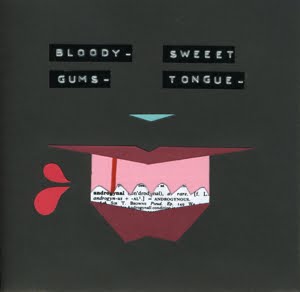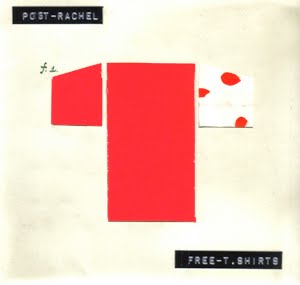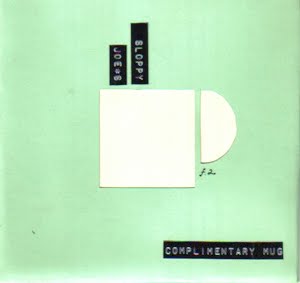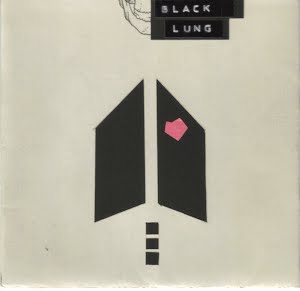
Sarah Oleksyk (comic artist, writer, illustrator, master of extra sensory perception...) is immediately accessible. I'd stumbled upon her work and was drawn to her ability to capture expressions, candor, warmth, alienation (the beauty in alienation) and so much more with a genius sense of timing.
Meet Sarah...

I have been drawing all my life, but as a child I would study wildlife books and plant books, trying to draw from them. I've always stuck to a strong foundation of drawing from life. I'd also copy other people's artwork so I could "learn" how they put the image together.
How did you come to the conclusion that it was your passion?
Comics are my passion - I actually hate illustration! I've always loved storytelling, and I was set on comics as a way to incorporate that into a visual medium. Even as a kid my comics were focused on characters and personalities.
What comics influenced you growing up? What do you like to read now? Any cartoons? (I think cartoons kind of suck now)
I started with more strip-format comics, or single-page or single-panel comics, like Life in Hell and Lynda Barry's Ernie Pook's Comeek. Then I discovered horrific based-on-true-life tales about WW2 atrocities, like Maus and Barefoot Gen. I was really into atrocities. Later on I sought out longer stories about people my age doing things I wished I could do - I read some Sandman short stories a boyfriend lent me, got into Ghost World by Clowes, even Johnny the Homicidal Maniac. Once I hit art school in NYC, all I was reading were independent comics - anything I could get my hands on. I'd read drug comics written in the 70s because I was sort of enamored with the idea of their (probably fictional) lifestyle then - nomadic, drug-using, free livin' types of people.
Now I try to read everything my friends do and everything that's gaining a buzz in the independent comics scene. Even stuff I don't care for, I'll read it so I have a foundation to like it or not like it - I like to know WHY I enjoy and respect something, or not. I try to keep up with what's currently coming out, because I consider it a professional duty to be aware of the work concurrent to your own.

excerpt from: Old Men Overheard by Sarah Oleksyk
Your work, especially the comics you have posted on the site, cover a wide range of emotions and ideas. For example, Old Men Overheard is your recreation of something that we can all relate to. After I read I wondered how I would illustrate my own experience?
this was mine:
UNLIKE TRAVELERS
CONVERGE ON COMMON SPACE
would you like some ice cream?
—he asks
no, thank you
—he responds
but that’s really good of you
It doesn't have the same hilarious finish, but you have to imagine the first speaker as a mentally ill old man eating an ice pop and the second guy as a gruff looking trucker. I mention all this to come to the idea that your comics, like some of the greatest short fiction of our era, captures a complex human essence with brevity. Do you find that the dual nature of comics (as a simultaneously visual and literal medium) is conducive to capturing such emotion and range?
Definitely. Comics sucks you in and brings you along for the ride. I've felt strong attachments to characters in comics and in non-graphic literary work. I've had to develop my editing skills over the years to bring in that brevity that makes a story snap, however - like a lot of people, I tend to put in too much, and it took a while to learn to remove all but the key bits to keep the story both flowing and still understandable. I look at Jaime Hernandez to see how rich a story you can tell while taking out so many unnecessary moments. But comics is unique in printed media in that it can insert a single panel of environment that sets the time and place better than an entire paragraph of written description could. Well-done comics can make you experience the story as though you were directly taking part in it. When I manage to achieve that in a comics story I consider it a major accomplishment!
Your style, especially in black & white, reminds me a lot of Local: an indie series by Oni Press, illustrated by Ryan Kelly and written by Brian Wood. Your own project, Ivy, shares a lot of similarities: a young woman in a transitional phase discovering herself in the milieu of a new world. There is an interesting undercurrent of Bildungsroman/self-exploration in your work. How much of Ivy (and some of your other works) draw from personal experience? Tell me a little more about Ivy and how it/she came about.
Ivy began years ago as straight-up autobiography, but when I stopped to consider the events in my own life I was writing about, it was a point in time where I'd done nothing but comics about myself for years and I was beginning to tire of it - the self-absorption, the need for "accuracy", the underlying idea that I was trying to make the readers LIKE ME. I reworked the storyline and removed the main character from "me" to this girl who was a sort of distillation of, how do I put it - not of who I was, but of how I felt most of the time as a person at that age. Anger. Impatience. Frustration. Insecurity. Once the character was no longer "me," I felt better about making her a little less likable, letting her make more mistakes.
Then I thought about why I was telling this story. It's an adventure story where the main focus is Ivy's interactions with the people in her life, and how she allows them to shape her. I asked myself what the message really was - and it's a hard one, it's that no one is going to come along and make your life magically better, no one but you will ultimately solve your problems, and most of your problems will never get solved. You just have to deal, adjust, move on, accept things and allow them to make you stronger. I wanted to write a book that I could've used desperately as a teen. When I was actually in high school, there were very few books that had a female protagonist to whom I could relate. All my favorite books starred boys. Things are starting to change now, but rather than sit and complain about it I decided to even out the balance with a book of my own.
Your illustrations are beautifully rendered. The color choice is vibrant, dreamlike and cartoony--setting fantastic moods. How do you illustrate? Pencil, cell, photoshop--a combination of mediums?
Thanks! I almost always ink my comics and illustrations on Bristol. I used to use a nib pen but now I use brush almost exclusively. Once inked, I scan in the drawings and clean them up in Photoshop, and if there's color that's where I add it. I'm not very skilled with paints.
What comics have you drawn for?
Hmm. I haven't worked on other peoples' titles. Generally if I'm not publishing my own comics, I'm contributing to anthologies. I've been included in Tugboat Press' Papercutter, on the Dark Horse Myspace Presents website, in the Missed Connections anthology, the Awesome anthology... the list goes on. I did a comics piece for the Girl Scouts of America this spring. It'll be in a young-teen handbook about being active in your community. I'm always looking for paying jobs, heh! But at the moment my highest priority is completing Ivy. I can't wait to see it published in one volume.
Thank you for your time and wise words Sarah. Best of luck in completing Ivy, I look forward to reading it in its entirety.
Sarah is a testament to independent art: the beauty of her creation and the hustle of her endeavors. Her eyes and ears are open to her contemporaries--something I have found most helpful in the advancement of my own work. Keep an eye out for Ivy and some of Sarah's other pieces. And be sure to support! Visit the site!

.jpg)
.jpg)
.jpg)
.jpg)
.jpg)


No comments:
Post a Comment